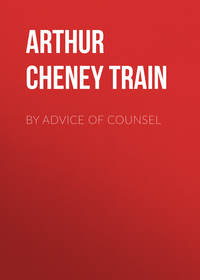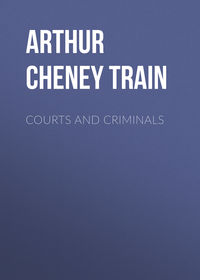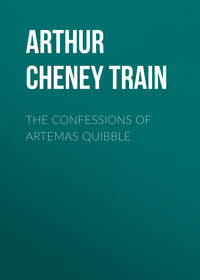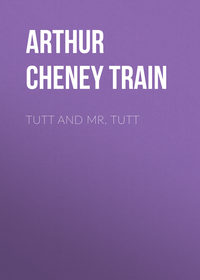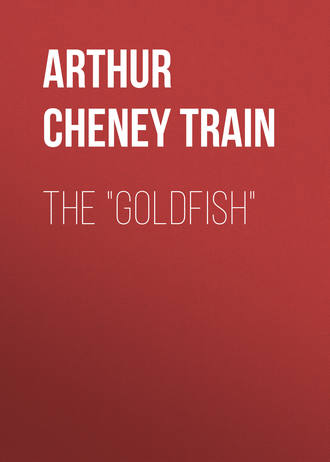
The "Goldfish"
I suppose it may be conceded, for the sake of argument, that every American, educated or not, should know the date of the Declaration of Independence, and have some sort of acquaintance with the character and deeds of Washington. If we add to this the date of the discovery of America and the first English settlement; the inauguration of the first president; the Louisiana Purchase; the Naval War with England; the War with Mexico; the Missouri Compromise, and the firing on Fort Sumter, we cannot be accused of pedantry. It certainly could not do any one of us harm to know these dates or a little about the events themselves.
This is equally true, only in a lesser degree, in regard to the history of foreign nations. Any accurate knowledge is worth while. It is harder, in the long run, to remember a date slightly wrong than with accuracy. The dateless man, who is as vague as I am about the League of Cambray or Philip II, will loudly assert that the trouble incident to remembering a date in history is a pure waste of time. He will allege that "a general idea"—a very favorite phrase—is all that is necessary. In the case of such a person you can safely gamble that his so-called "general idea" is no idea at all. Pin him down and he will not be able to tell you within five hundred years the dates of some of the cardinal events of European history—the invasion of Europe by the Huns, for instance. Was it before or after Christ? He might just as well try to tell you that it was quite enough to know that our Civil War occurred somewhere in the nineteenth century.
I have personally no hesitation in advancing the claim that there are a few elementary principles and fundamental facts in all departments of human knowledge which every person who expects to derive any advantage from intelligent society should not only once learn but should forever remember. Not to know them is practically the same thing as being without ordinary means of communication. One may not find it necessary to remember the binomial theorem or the algebraic formula for the contents of a circle, but he should at least have a formal acquaintance with Julius Caesar, Hannibal, Charlemagne, Martin Luther, Francis I, Queen Elizabeth, Louis XIV, Napoleon I—and a dozen or so others. An educated man must speak the language of educated men.
I do not think it too much to demand that in history he should have in mind, at least approximately, one important date in each century in the chronicles of France, England, Italy and Germany. That is not much, but it is a good start. And shall we say ten dates in American history? He should, in addition, have a rough working knowledge of the chief personages who lived in these centuries and were famous in war, diplomacy, art, religion and literature. His one little date will at least give him some notion of the relation the events in one country bore to those in another.
I boldly assert that in a half hour you can learn by heart all the essential dates in American history. I assume that you once knew, and perhaps still know, something about the events themselves with which they are connected. Ten minutes a day for the rest of the week and you will have them at your fingers' ends. It is no trick at all. It is as easy as learning the names of the more important parts of the mechanism of your motor. There is nothing impossible or difficult, or even tedious, about it; but it seems Herculean because you have never taken the trouble to try to remember anything. It is the same attitude that renders it almost physically painful for one of us to read over the scenario of an opera or a column biography of its composer before hearing a performance at the Metropolitan. Yet fifteen minutes or half an hour invested in this way pays about five hundred per cent.
And the main thing, after you have learned anything, is not to forget it. Knowledge forgotten is no knowledge at all. That is the trouble with the elective system as usually administered in our universities. At the end of the college year the student tosses aside his Elements of Geology and forgets everything between its covers. What he has learned should be made the basis for other and more detailed knowledge. The instructor should go on building a superstructure on the foundation he has laid, and at the end of his course the aspirant for a diploma should be required to pass an examination on his entire college work. Had I been compelled to do that, I should probably be able to tell now—what I do not know—whether Melancthon was a painter, a warrior, a diplomat, a theologian or a dramatic poet.
I have instanced the study of dates because they are apt to be the storm center of discussions concerning education. It is fashionable to scoff at them in a superior manner. We all of us loathe them; yet they are as indispensable—a certain number of them—as the bones of a body. They make up the skeleton of history. They are the orderly pegs on which we can hang later acquired information. If the pegs are not there the information will fall to the ground.
For example, our entire conception of the Reformation, or of any intellectual or religious movement, might easily turn on whether it preceded or followed the discovery of printing; and our mental picture of any great battle, as well as our opinion of the strategy of the opposing armies, would depend on whether or not gunpowder had been invented at the time. Hence the importance of a knowledge of the dates of the invention of printing and of gunpowder in Europe.
It is ridiculous to allege that there is no minimum of education, to say nothing of culture, which should be required of every intelligent human being if he is to be but a journeyman in society. In an unconvincing defense of our own ignorance we loudly insist that detailed knowledge of any subject is mere pedagogy, a hindrance to clear thinking, a superfluity. We do not say so, to be sure, with respect to knowledge in general; but that is our attitude in regard to any particular subject that may be brought up. Yet to deny the value of special information is tantamount to an assertion of the desirability of general ignorance. It is only the politician who can afford to say: "Wide knowledge is a fatal handicap to forcible expression."
This is not true of the older countries. In Germany, for instance, a knowledge of natural philosophy, languages and history is insisted on. To the German schoolboy, George Washington is almost as familiar a character as Columbus; but how many American children know anything of Bismarck? The ordinary educated foreigner speaks at least two languages and usually three, is fairly well grounded in science, and is perfectly familiar with ancient and modern history. The American college graduate seems like a child beside him so far as these things are concerned.
We are content to live a hand-to-mouth mental existence on a haphazard diet of newspapers and the lightest novels. We are too lazy to take the trouble either to discipline our minds or to acquire, as adults, the elementary knowledge necessary to enable us to read intelligently even rather superficial books on important questions vitally affecting our own social, physical intellectual or moral existences.
If somebody refers to Huss or Wyclif ten to one we do not know of whom he is talking; the same thing is apt to be true about the draft of the hot-water furnace or the ball and cock of the tank in the bathroom. Inertia and ignorance are the handmaidens of futility. Heaven forbid that we should let anybody discover this aridity of our minds!
My wife admits privately that she has forgotten all the French she ever knew—could not even order a meal from a carte de jour; yet she is a never-failing source of revenue to the counts and marquises who yearly rush over to New York to replenish their bank accounts by giving parlor lectures in their native tongue on Le XIIIme Siècle or Madame Lebrun. No one would ever guess that she understands no more than one word out of twenty and that she has no idea whether Talleyrand lived in the fifteenth or the eighteenth century, or whether Calvin was a Frenchman or a Scotchman.
Our clever people are content merely with being clever. They will talk Tolstoi or Turgenieff with you, but they are quite vague about Catherine II or Peter the Great. They are up on D'Annunczio, but not on Garibaldi or Cavour. Our ladies wear a false front of culture, but they are quite bald underneath.
* * * * *Being educated, however, does not consist, by any means, in knowing who fought and won certain battles or who wrote the Novum Organum. It lies rather in a knowledge of life based on the experience of mankind. Hence our study of history. But a study of history in the abstract is valueless. It must be concrete, real and living to have any significance for us. The schoolboy who learns by rote imagines the Greeks as outline figures of one dimension, clad in helmets and tunics, and brandishing little swords. That is like thinking of Jeanne d'Arc as a suit of armor or of Theodore Roosevelt as a pair of spectacles.
If the boy is to gain anything by his acquaintance with the Greeks he must know what they ate and drank, how they amused themselves, what they talked about, and what they believed as to the nature and origin of the universe and the probability of a future life. I hold that it is as important to know how the Romans told time as that Nero fiddled while his capital was burning. William the Silent was once just as much alive as P.T. Barnum, and a great deal more worth while. It is fatal to regard historical personages as lay figures and not as human beings.
We are equally vague with respect to the ordinary processes of our daily lives. I have not the remotest idea of how to make a cup of coffee or disconnect the gas or water mains in my own house. If my sliding door sticks I send for the carpenter, and if water trickles in the tank I telephone for the plumber. I am a helpless infant in the stable and my motor is the creation of a Frankenstein that has me at its mercy. My wife may recall something of cookery—which she would not admit, of course, before the butler—but my daughters have never been inside a kitchen. None of my family knows anything about housekeeping or the prices of foodstuffs or house-furnishings. My coal and wood are delivered and paid for without my inquiring as to the correctness of the bills, and I offer the same temptations to dishonest tradesmen that a drunken man does to pickpockets. Yet I complain of the high cost of living!
My family has never had the slightest training in practical affairs. If we were cast away on a fertile tropical island we should be forced to subsist on bananas and clams, and clothe ourselves with leaves,—provided the foliage was ready made and came in regulation sizes.
These things are vastly more important from an educational point of view than a knowledge of the relationship of Mary Stuart to the Duke of Guise, however interesting that may be to a reader of French history of the sixteenth century. A knowledge of the composition of gunpowder is more valuable than of Guy Fawkes' Gunpowder Plot. If we know nothing about household economies we can hardly be expected to take an interest in the problems of the proletariat. If we are ignorant of the fundamental data of sociology and politics we can have no real opinions on questions affecting the welfare of the people.
The classic phrase "The public be damned!" expresses our true feeling about the matter. We cannot become excited about the wrongs and hardships of the working class when we do not know and do not care how they live. One of my daughters—aged seven—once essayed a short story, of which the heroine was an orphan child in direst want. It began: "Corrine was starving. 'Alas! What shall we do for food?' she asked her French nurse as they entered the carriage for their afternoon drive in the park." I have no doubt that even to-day this same young lady supposes that there are porcelain baths in every tenement house.
I myself have no explanation as to why I pay eighty dollars for a business suit any my bookkeepers seems to be equally well turned out for eighteen dollars and fifty cents. That is essentially why the people have an honest and well-founded distrust of those enthusiastic society ladies who rush into charity and frantically engage in the elevation of the masses. The poor working girl is apt to know a good deal more about her own affairs than the Fifth Avenue matron with an annual income of three hundred and fifty thousand dollars.
If I were doing it all over again—and how I wish I could!—I should insist on my girls being taught not only music and languages but cooking, sewing, household economy and stenography. They should at least be able to clothe and feed themselves and their children if somebody supplied them with the materials, and to earn a living if the time came when they had to do it. They have now no conception of the relative values of even material things, what the things are made of or how they are put together. For them hats, shoes, French novels and roast chicken can be picked off the trees.
* * * * *This utter ignorance of actual life not only keeps us at a distance from the people of our own time but renders our ideas of history equally vague, abstract and unprofitable. I believe it would be an excellent thing if, beginning with the age of about ten years, no child were allowed to eat anything until he was able to tell where it was produced, what it cost and how it was prepared. If this were carried out in every department of the child's existence he would have small need of the superficial education furnished by most of our institutions of learning. Our children are taught about the famines of history when they cannot recognize a blade of wheat or tell the price of a loaf of bread, or how it is made.
I would begin the education of my boy—him of the tango and balkline billiards—with a study of himself, in the broad use of the term, before I allowed him to study about other people or the history of nations. I would seat him in a chair by the fire and begin with his feet. I would inquire what he knew about his shoes—what they were made of, where the substance came from, the cost of its production, the duty on leather, the process of manufacture, the method of transportation of goods, freight rates, retailing, wages, repairs, how shoes were polished—this would begin, if desired, a new line of inquiry as to the composition of said polish, cost, and so on—comparative durability of hand and machine work, introduction of machines into England and its effect on industrial conditions. I say I would do all this; but, of course, I could not. I would have to be an educated man in the first place. Why, beginning with that dusty little pair of shoes, my boy and I might soon be deep in Interstate Commerce and the Theory of Malthus—on familiar terms with Thomas A. Edison and Henry George!
And the next time my son read about a Tammany politician giving away a pair of shoes to each of his adherents it would mean something to him—as much as any other master stroke of diplomacy.
I would instruct every boy in a practical knowledge of the house in which he lives, give him a familiarity with simple tools and a knowledge of how to make small repairs and to tinker with the water pipes. I would teach him all those things I now do not know myself—where the homeless man can find a night's lodging; how to get a disorderly person arrested; why bottled milk costs fifteen cents a quart; how one gets his name on the ballot if he wants to run for alderman; where the Health Department is located, and how to get vaccinated for nothing.
By the time we had finished we would be in a position to understand the various editorials in the morning papers which now we do not read. Far more than that, my son would be brought to a realization that everything in the world is full of interest for the man who has the knowledge to appreciate its significance. "A primrose by a river's brim" should be no more suggestive, even to a lake-poet, than a Persian rug or a rubber shoe. Instead of the rug he will have a vision of the patient Afghan in his mountain village working for years with unrequited industry; instead of the shoe he will see King Leopold and hear the lamentations of the Congo.
My ignorance of everything beyond my own private bank account and stomach is due to the fact that I have selfishly and foolishly regarded these two departments as the most important features of my existence. I now find that my financial and gastronomical satisfaction has been purchased at the cost of an infinite delight in other things. I am mentally out of condition.
Apart from this brake on the wheel of my intelligence, however, I suffer an even greater impediment by reason of the fact that, never having acquired a thorough groundwork of elementary knowledge, I find I cannot read with either pleasure or profit. Most adult essays or histories presuppose some such foundation.
Recently I have begun to buy primers—such as are used in the elementary schools—in order to acquire the information that should have been mine at twenty years of age. And I have resolved that in my daily reading of the newspapers I will endeavor to look up on the map and remember the various places concerning which I read any news item of importance, and to assimilate the facts themselves. It is my intention also to study, at least half an hour each day, some simple treatise on science, politics, art, letters or history. In this way I hope to regain some of my interest in the activities of mankind. If I cannot do this I realize now that it will go hard with me in the years that are drawing nigh. I shall, indeed, then lament that "I have no pleasure in them."
* * * * *It is the common practice of business men to say that when they reach a certain age they are going to quit work and enjoy themselves. How this enjoyment is proposed to be attained varies in the individual case. One man intends to travel or live abroad—usually, he believes, in Paris. Another is going into ranching or farming. Still another expects to give himself up to art, music and books. We all have visions of the time when we shall no longer have to go downtown every day and can indulge in those pleasures that are now beyond our reach.
Unfortunately the experience of humanity demonstrates the inevitability of the law of Nature which prescribes that after a certain age it is practically impossible to change our habits, either of work or of play, without physical and mental misery.
Most of us take some form of exercise throughout our lives—riding, tennis, golf or walking. This we can continue to enjoy in moderation after our more strenuous days are over; but the manufacturer, stock broker or lawyer who thinks that after his sixtieth birthday he is going to be able to find permanent happiness on a farm, loafing round Paris or reading in his library will be sadly disappointed. His habit of work will drive him back, after a year or so of wretchedness, to the factory, the ticker or the law office; and his habit of play will send him as usual to the races, the club or the variety show.
One cannot acquire an interest by mere volition. It is a matter of training and of years. The pleasures of to-day will eventually prove to be the pleasures of our old age—provided they continue to be pleasures at all, which is more than doubtful.
As we lose the capacity for hard work we shall find that we need something to take its place—something more substantial and less unsatisfactory than sitting in the club window or taking in the Broadway shows. But, at least, the seeds of these interests must be sown now if we expect to gather a harvest this side of the grave.
What is more natural than to believe that in our declining years we shall avail ourselves of the world's choicest literature and pass at least a substantial portion of our days in the delightful companionship of the wisest and wittiest of mankind? That would seem to be one of the happiest uses to which good books could be put; but the hope is vain. The fellow who does not read at fifty will take no pleasure in books at seventy.
My club is full of dozens of melancholy examples of men who have forgotten how to read. They have spent their entire lives perfecting the purely mechanical aspects of their existences. The mind has practically ceased to exist, so far as they are concerned. They have built marvelous mansions, where every comfort is instantly furnished by contrivances as complicated and accurate as the machinery of a modern warship. The doors and windows open and close, the lights are turned on and off, and the elevator stops—all automatically. If the temperature of a room rises above a certain degree the heating apparatus shuts itself off; if it drops too low something else happens to put it right again. The servants are swift, silent and decorous. The food is perfection. Their motors glide noiselessly to and fro. Their establishments run like fine watches.
They have had to make money to achieve this mechanical perfection; they have had no time for anything else during their active years. And, now that those years are over, they have nothing to do. Their minds are almost as undeveloped as those of professional pugilists. Dinners and drinks, backgammon and billiards, the lightest opera, the trashiest novels, the most sensational melodrama are the most elevating of their leisure's activities. Read? Hunt? Farm? Not much! They sit behind the plate-glass windows and bet on whether more limousines will go north than south in the next ten minutes.
If you should ask one of them whether he had read some book that was exciting discussion among educated people at the moment, he would probably look at you blankly and, after remarking that he had never cared for economics or history—as the case might be—inquire whether you preferred a "Blossom" or a "Tornado." Poor vacuous old cocks! They might be having a green and hearty old age, surrounded by a group of the choicest spirits of all time.
Upstairs in the library there are easy-chairs within arm's reach of the best fellows who ever lived—adventurers, story-tellers, novelists, explorers, historians, rhymers, fighters, essayists, vagabonds and general liars—Immortals, all of them.
You can take your pick and if he bores you send him packing without a word of apology. They are good friends to grow old with—friends who in hours of weariness, of depression or of gladness may be summoned at will by those of us who belong to the Brotherhood of Educated Men—of which, alas! I and my associates are no longer members.
CHAPTER V
MY MORALS
The concrete evidence of my success as represented by my accumulated capital—outside of my uptown dwelling house—amounts, as I have previously said, to about seven hundred and fifty thousand dollars. This is invested principally in railroad and mining stocks, both of which are subject to considerable fluctuation; and I have also substantial holdings in industrial corporations. Some of these companies I represent professionally. As a whole, however, my investments may be regarded as fairly conservative. At any rate they cause me little uneasiness.
My professional income is regular and comes with surprisingly little effort. I have as clients six manufacturing corporations that pay me retainers of twenty-five hundred dollars each, besides my regular fees for services rendered. I also represent two banks and a trust company.
All this is fixed business and most of it is attended to by younger men, whom I employ at moderate salaries. I do almost no detail work myself, and my junior partners relieve me of the drawing of even important papers; so that, though I am constantly at my office, my time is spent in advising and consulting.
I dictate all my letters and rarely take a pen in my hand. Writing has become laborious and irksome. I even sign my correspondence with an ingenious rubber stamp that imitates my scrawling signature beyond discovery. If I wish to know the law on some given point I press a button and tell my managing clerk what I want. In an hour or two he hands me the authorities covering the issue in question in typewritten form. It is extraordinarily simple and easy. Yet only yesterday I heard of a middle-aged man, whom I knew to be a peculiarly well-equipped all-around lawyer, who was ready to give up his private practice and take a place in any reputable office at a salary of thirty-five hundred dollars!
Most of my own time is spent in untangling mixed puzzles of law and fact, and my clients are comparatively few in number, though their interests are large. Thus I see the same faces over and over again. I lunch daily at a most respectable eating club; and here, too, I meet the same men over and over again. I rarely make a new acquaintance downtown; in fact I rarely leave my office during the day. If I need to confer with any other attorney I telephone. There are dozens of lawyers in New York whose voices I know well—yet whose faces I have never seen.


